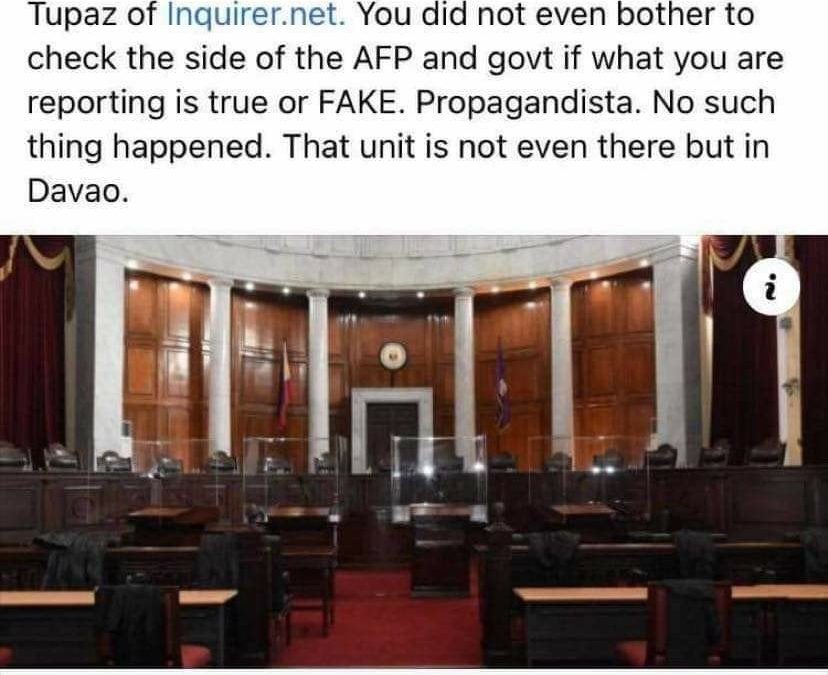Not even a week since oral arguments on the Anti-Terrorism Act of 2020 started and the spokesperson of the National Task Force to End Local Communist Armed Conflict has flexed his muscles and shown precisely the behavior that petitioners against the draconian law have been raising alarms about.
On February 3, 2021, Lt. Gen. Antonio Parlade Jr., labeled Inquirer.net journalist Tetch Torres-Tupas a propagandist over her story “Tortured Aetas seek SC help against anti-terror law”, saying she should have “[checked] the side of the [Armed Forces of the Philippines] and [government] if what you are reporting is true or fake.”
But Torres-Tupas, like other reporters covering the justice beat who wrote about the petition-in-intervention filed by Aeta farmers Japer Gurung and Junior Ramos, reported on the filing of the petition and not the August 2020 incident that Parlade and the AFP are disputing.
Torres-Tupas was simply writing about the fact that the petition was filed and recounting the allegations made in that petition.
Up to that point, Parlade’s comments, like his incorrect reference to her as “Torres-Tupaz”, could be viewed as a fair comment on her work and, perhaps, a lack of familiarity with how stories about petitions and complaints are written.
In the comment thread, however, and in apparent response to a social media user’s comment asking “Sir, hindi niyo po ba sila pwede sampahan ng kaso?”, Parlade said: “Aiding the terrorists by spreading lies? PUEDE”.
And in another post, Parlade asked if Torres-Tupas’ sources for her story were what he called “propaganda machines of the CPP” – Human Rights Watch and alternative media outfit Kodao Productions, which happens to be one of our chapters – indicating that he may not have even read the article whose author he disparaged, else he would have known neither of these was her sources.
The National Union of Journalists of the Philippines takes exception to and expresses alarm over yet another threat from Parlade, whose previous Facebook post about groups questioning the Anti-Terrorism Act of 2020 is viewed as a clear threat by some of the petitioners, including former Supreme Court Senior Associate Justice Antonio Carpio and former Ombudsman Conchita Carpio Morales.
While the Office of the Solicitor General has yet to comment on whether Parlade’s previous post should be considered an official government communication, it cannot be denied that it, as well as the Facebook post against Torres-Tupas, are threats directed not only at those questioning the ATA but also at those covering those questioning the controversial law.
The government has repeatedly issued reassurances that the law will not be used to stifle dissent or to clamp down on the press. But actions and statements by people like Parlade, who will be tasked with implementing the Anti-Terrorism Law, speak louder than those press statements.
Government inaction on the threat against Torres-Tupas and on similar statements and threats against activists and journalists means government consent and even endorsement of those actions and belies the claim that the law does not target criticism and dissent.
Reference:
National Directorate
+639175155991

